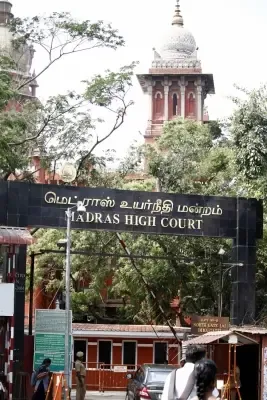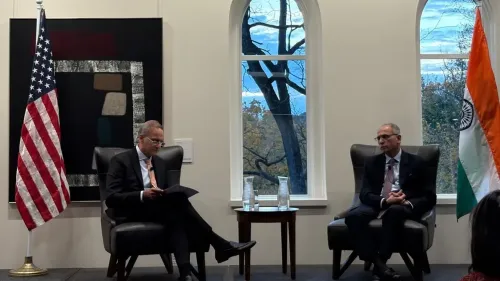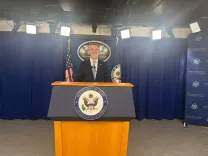Will the Madras HC Modify the Ban on TNSTC Buses at Toll Plazas?

Synopsis
Key Takeaways
- Madras High Court to review plea from TNSTC.
- Ban on buses due to Rs 276 crore unpaid dues.
- Impact on public transportation in southern districts.
- Urgent discussions scheduled with the State Transport Department.
- Importance of resolving long-standing financial issues.
Chennai, July 9 (NationPress) The Madras High Court has decided to hear the request from the Tamil Nadu State Transport Corporation to amend its ruling from July 8, which forbade TNSTC buses from utilizing four toll plazas in the southern region of the state due to outstanding debts totaling Rs 276 crore.
Justice N. Anand Venkatesh approved the urgent consideration of this matter for Thursday after Additional Advocate General (AAG) J. Ravindran made an immediate appeal.
The AAG informed the court that negotiations would take place with the State Transport Department to resolve the growing backlog of dues that have remained unresolved for several years.
The interim ruling instructed the National Highways Authority of India (NHAI) and local law enforcement to prevent TNSTC buses from traversing toll plazas at Kappalur, Etturavattam, Salaipudhur, and Nanguneri starting from July 10.
It also mandated the Director General of Police and the Inspector General of Police (South Zone) to ensure adequate police presence at these toll locations to maintain order.
Justice Venkatesh stated that he felt it necessary to implement what he called an 'extreme measure' due to the ongoing failures of the Transport Department to meet its financial obligations.
He observed that the continuous accumulation of penalties and interest had escalated the financial strain, and only decisive judicial action could compel the department to respond.
This ruling was issued following writ petitions from four tollway concessionaires — Madurai-Kanniyakumari Tollway Pvt. Ltd., Kanniyakumari-Etturavattam Tollway Pvt. Ltd., Salaipudur-Madurai Tollway Pvt. Ltd., and Nanguneri-Kanniyakumari Tollway Pvt. Ltd. — who claimed that TNSTC failed to pay toll fees and did not adhere to FASTag requirements for their fleet.
The court is set to review TNSTC's petition for modification of the order on Thursday. The outcome could significantly affect public transportation across the southern districts, particularly if the ban remains enforced.









